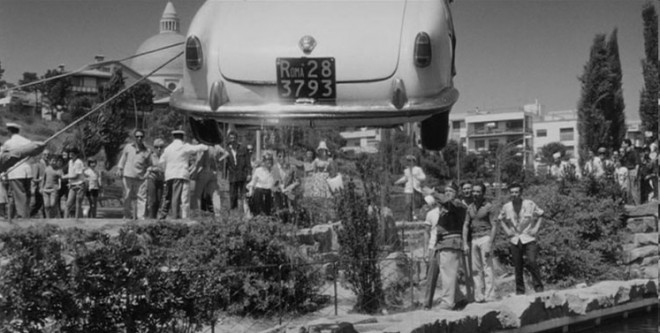We do not have to wonder how Anthony Burgess, the British author of the novella A Clockwork Orange (1962), felt about the film version. Burgess chose to walk out of a preview showing that had been arranged for him. Indeed, he continued to disdain Stanley Kubrick’s nasty film for all of his days.
Leave it to Kubrick, the Dr. Strangelove of movie directors, to reverse the book’s meanings and purpose. “Burgess’s satirical novels address moral issues and social ills,” I wrote for a literary encyclopedia entry. Esther Petix describes his Clockwork Orange as a “horrible [vision] of the future, predicated on the present”—a projection of “excesses of the Welfare state.” To quote from the entry that I wrote:
A gang of young teenaged thugs are on a raping, robbing and killing rampage. (A street assault on Burgess’s first wife had resulted in the loss of the child they were expecting.) However, the focus shifts to the state’s aggressive experiments in behavior modification to render the gang’s leader, Alex, no longer a threat. The price of society’s safety, the state assumes, is the loss of “free will” in those whom society “cures.” Burgess questions this assumption, placing it in a theological framework that considers the relationship of goodness to the exercise of free will. (The novel’s concluding chapter—omitted from U.S. editions until 1988—exposes the state as misguided in its reformative zeal.) Having reverted to his pre-“treated” state, Alex nevertheless has grown tired of his violence; but will it be undone or just sublimated? Samuel Coale notes that, “in [Burgess’s] novels[,] good and evil interpenetrate one another. . . . There are moments when good seems to conquer evil, but these are only moments in an endless flux of time and space.”
Alex’s “cure” fails also in the Kubrick, but the film glorifies his and his gang’s violence, turning evil into “entertainment” in which audiences are invited to participate, occasionally to the tune of “Singin’ in the Rain.” The film helped to create a social scene that the book warns against. Kubrick, not the swiftest brain in town, misses the connection that Burgess draws between the state’s impersonalizing/dehumanizing tendencies and the inhuman existences and acts that these foster, causing the state to ratchet up its application of these tendencies. Even if one is closer politically to Kubrick, one cannot fail to note how little intelligence is operating in his occasionally gorgeously wide-angled film.
Irresponsible writers are fond of saying that what they write mirrors rather than influences reality; in many cases, ironically, it is the only circumstance when writers declare themselves non-influential. However, the outburst of gang violence on both sides of the Atlantic following the release of Kubrick’s film couldn’t so easily be gotten off the hook because the thugs involved often wore facsimiles of the distinctive garb in which Kubrick’s mayhem-makers dressed. To his everlasting credit, Kubrick himself was horrified at this and promptly pulled the film from distribution after making a public apology. Well, that worked at home, in Bronx-born Kubrick’s adopted homeland of Great Britain, but he had no such influence as to withdraw the film in the United States, where forces that his film had unleashed continued unabated for a quarter-century, turning urban and suburban America into a cauldron of terror. To be sure, the protracted event was overdetermined, with numerous other factors helping to determine and sustain it; but Kubrick’s handprint remained on it. In some naive circles, Kubrick’s film was accounted “prophetic” of the waves of violence it in fact had helped unleash.
All in all, Kubrick’s A Clockwork Orange, while cribbing some measure of hilarity from Burgess’s Russian-derived gang-slang, is an ugly and off-putting film; consider the gratuitous rape of a stripped-naked woman, Alex’s face falling unconscious into a plate of red-sauced spaghetti, and the cruelty of those scenes when his eyes are clamped into a state of perpetual openness as Alex is being conditioned while viewing depictions of horrific violence on a movie screen. Without the distancing effect of the book’s medium of language, on many scores Kubrick’s mean, cold-blooded film becomes an assault on us.
Wonderful Malcolm McDowell, who plays Alex, isn’t the problem here or anywhere else that I can recall.
B(U)Y THE BOOK
MY BOOK, A Short Chronology of World Cinema, IS CURRENTLY AVAILABLE FROM THE SANDS FILMS CINEMA CLUB IN LONDON. USING EITHER OF THE LINKS BELOW, ACCESS THE ADVERTISEMENT FOR THIS BOOK, FROM WHICH YOU CAN ORDER ONE OR MORE COPIES OF IT. THANKS.

Evil is entertainment. Grow a sack you humanist pussy.
Like Mengele, Bob finds evil entertaining. Given that he doesn’t know where to insert a comma (or anything else, I suspect), one can’t imagine that he is the pride of Williams College.